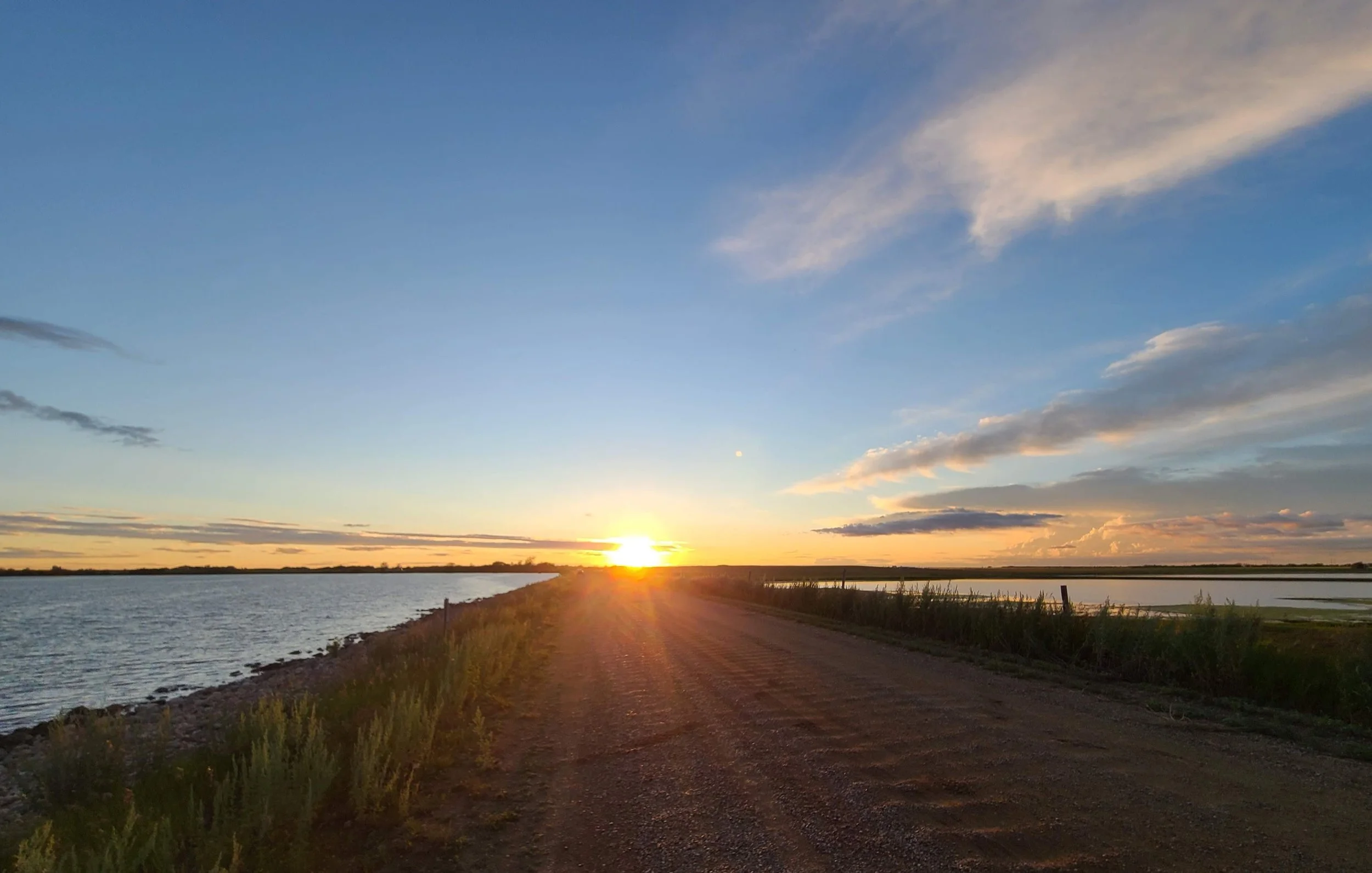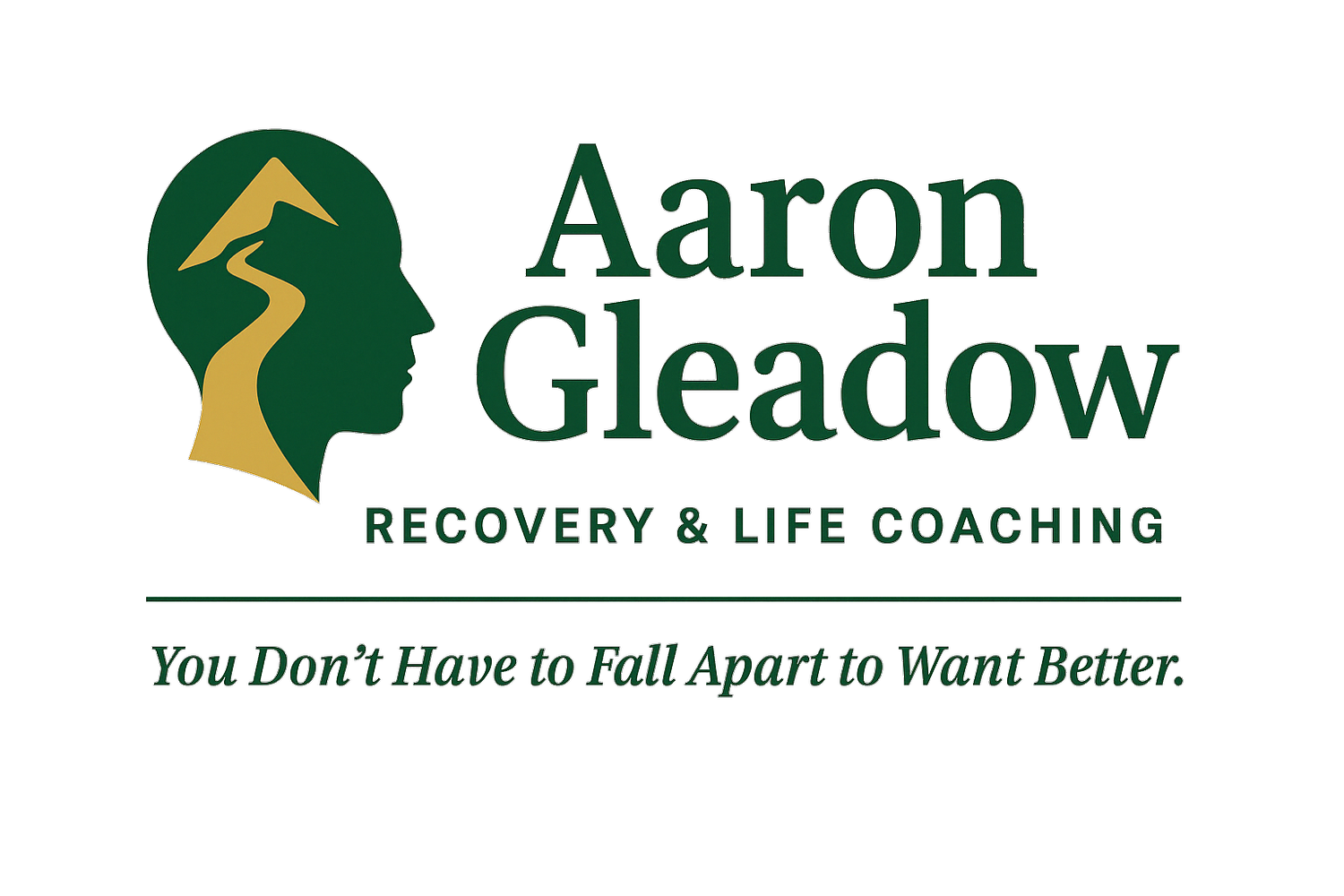
You Do Not Have To Hit Rock Bottom To Want Better
For a long time, I believed I did..
I drank for more than twenty six years. I worked hard, showed up, and did everything I could to look steady from the outside. Inside, I felt like I was hanging on by my fingernails.
Today, I help people who feel that same split. The ones who look fine on paper and feel like they are falling apart inside.
I am Aaron Gleadow, a Neuroscience and Recovery Coach based in Canada, working with clients around the world.
My work brings together three things you do not often find in the same place:
Long term lived experience with addiction and recovery
Formal training in neurosciences, trauma informed care, and project planning
A deep, practical commitment to making recovery fit real life
I work with people who carry a lot. Parents. Leaders. Healthcare workers. Small business owners. Caregivers. People who are used to being the strong one, and are tired of doing it alone.
Who I Am Today
The Years That Nearly Broke Me
Alcohol was part of my life for more than twenty six years.
On the surface, there were a lot of stories and a lot of movement. I travelled, worked interesting jobs, and poured myself into work and family. I was quick, capable, and always busy.
In those years, I worked in healthcare in Saskatchewan, specializing in neurodiagnostics. I supported patients and families through some of their worst days, and I learned how pressure, uncertainty, and nervous system overload show up in real people, not just in theory.
From the outside, I looked reliable and capable. Inside, I was eroding.
Underneath, I was using alcohol to manage pain I did not know how to name. I knew I had a problem early. I tried to quit for the first time when I was nineteen.
For years after that, my life followed a pattern:
Try to quit. Hold it together. Hit a wall. Fall back. Tell myself I would do better next time.
I became very skilled at carrying on while falling apart.
The Night Everything Changed
One winter night, I was alone in my truck on the frozen prairie. Snow moved through the beam of my headlights, slow and steady, like the whole world had gone quiet.
I was not thinking about programs or plans. I was in misery. I felt hopeless. I was staring straight at the life I had been living, and the version of myself I had become. I was thinking about my role, my worth, and whether any of this mattered anymore. I could not see a way forward. I could not see a way out.
And then something profound happened.
In the stillness of that night, with snowflakes lit up in my headlights across the open prairie, hope came back to me. It was not loud. It was not dramatic. It was clear.
I realized I had a choice.
I could do nothing and slowly disappear, or I could change.
In that moment, the switch flipped. Something spiritual settled into me. I decided I was worth it. I decided my life was worth it. I decided my boys deserved a father who stayed, and I deserved a life I could actually live.
I drove home. I read bedtime stories with my face still wet with tears. And then, step by step, I began to rebuild.
Rebuilding From The Ground Up
Recovery did not happen in one decision. It happened in thousands of small, honest ones.
Recovery did not happen in one decision. It happened in thousands of small, honest ones.
After that night, I stepped away from life in a serious way. I was still employed by the Saskatchewan Health Authority at the time, but I was not working. I was concentrating solely on getting well. I needed full space to rebuild, without pretending I could hold everything together.
I spent time in sober living. I did treatment and structured recovery work. I sat in hard rooms and told the truth. I learned about trauma, attachment, and the nervous system. I started to understand why my brain kept reaching for what was hurting me, and what it would actually take to live differently.
That season shaped everything I do now.
Because I had to step away completely to rebuild, I understand how hard it is for people who cannot press pause on their lives. One of the reasons my coaching is built the way it is, is so that recovery can be integrated into real life, not separated from it.
As I rebuilt, I integrated:
Formal education in neurosciences
Over a decade of experience in hospital neurodiagnostics in Saskatchewan
A certificate in project management that sharpened my ability to turn big change into concrete, doable steps
Experience supporting mental health and addiction initiatives, including partnership work with Indigenous communities
Recovery for me was not only about stopping alcohol. It was about learning how to live in a way that was honest, grounded, and sustainable for myself and my family.
Why I Became a Recovery Coach
I did not set out to become a coach. I set out to understand why some people heal and others stay stuck, even when they care deeply and try very hard.
Over time, it became impossible not to share what I was learning.
Clients often tell me I bring three things to our work together:
A calm, steady presence that does not flinch at the truth
The ability to translate neuroscience into clear, everyday language
A structured way of thinking that turns chaos into a sequence and a plan
I see patterns quickly. I listen for what is said and what is not said. I care about details, but I never forget there is a human being in front of me.
How I Work With Clients
My coaching is private, structured, and deeply personal. There is no template program. We build around your life, not an ideal schedule on paper.
Together, we will:
Map what is actually happening in your days, your nervous system, and your relationships
Identify the few changes that will move the needle the most
Build routines and tools you can use in real moments, not just when things are calm
Develop language for hard conversations at home and at work
Create relapse prevention plans that are shame free and realistic
I am direct and honest, but never harsh. There is no performance here. You do not have to impress me or prove anything. You get to show up exactly as you are.
Who I Work Best With
We are usually a good fit if you:
Function at a high level in most areas of life, but feel increasingly out of control with alcohol or other coping tools
Carry a lot of responsibility and do not have many places where you can be completely honest
Care about the science and want to understand what is happening in your brain and nervous system
Are ready to do real work, even if you are scared or unsure where to start
What You Can Expect From Working With Me
Clients often describe the early changes as relief. Not because everything is fixed, but because they are finally not alone in holding it.
Over time, you can expect:
Fewer urges and more calm, especially in the evenings
Clearer thinking and more energy for the people and work you care about
Boundaries that feel firm and kind at the same time
A recovery plan that is simple enough to follow, and strong enough to hold
A growing sense that you are living as yourself again, not as a role you are trying to maintain
This work is about helping you return to yourself, and building a life that supports that return.
My Promise To You
I will never see you as a problem to solve.
I will treat your story with the same care I wanted for my own.
I will bring my full attention, my lived experience, and my training to every session.
I will be honest with you, even when it is uncomfortable, and I will never use shame as a tool.
You do not have to earn support by falling further. You are allowed to ask for help while you are still standing.

Ready To Talk With Someone Who Has Been There And Knows The Science Behind It?
If any part of my story sounds like yours, we can sort out your next step together on a short call.
No pressure. No expectations. Just a confidential place to begin.
